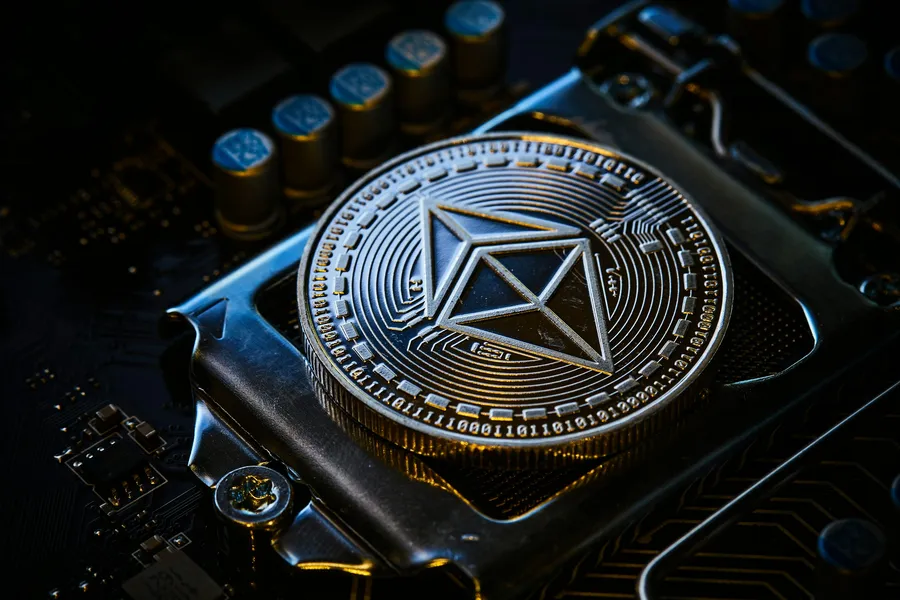What is Cryptocurrency Sharding? – Scaling and Increasing Network Speed

Title: Unpacking the Deceptively Simple Concept of Crypto Sharding – Or How to Accelerate Your Blockchain Without Blowing Up Your Security
As someone who’s seen enough crypto hacks and smart contract bugs to fill a dozen graveyards, I understand why you might be curious about this thing called “sharding”. You know: that mysterious, panacea-like concept promising to speed up blockchains without sacrificing their security or decentralization. But before we dive in, let’s get one thing straight – sharding is not a magic bullet. It’s more like a highly advanced sniper rifle. Used wisely, it can hit the bullseye every time. Misuse it? Well, let’s just say you might end up shooting yourself in the foot…or worse.
What Is Crypto Sharding?
Sharding is essentially the process of splitting a blockchain into multiple smaller ones, each dealing with specific parts or “shards” of data. Think of it like dividing a massive puzzle into smaller ones, making it easier to solve and less prone to mistakes due to human error.
Here’s a simple analogy: Imagine you run a grocery store with hundreds of customers every day. Processing each transaction one by one would take forever, right? Now imagine if you could split these transactions into groups based on where they come from or what time they happen. Each group gets processed separately, speeding up the whole process without compromising accuracy. That’s pretty much how sharding works.
The Upsides of Sharding
Faster Transactions: Splitting a blockchain means transactions can be processed in parallel, significantly reducing wait times and allowing for more throughput.
Scalability: As networks grow, traditional blockchains tend to slow down due to increased transaction volume. Sharding mitigates this issue by distributing the workload across multiple ‘shards’.
Better Resource Utilization: With sharding, resources like CPU power and memory aren’t as heavily taxed because they don’t need to handle every single transaction on the network.
The Downsides of Sharding
Complexity: Sharding introduces new layers of complexity into an already complex system, which increases the risk of bugs and vulnerabilities.
Security Risks: While well-designed sharding can enhance security by partitioning sensitive data, poorly executed sharding could create single points of failure or expose more data than intended. Remember that key leak I mentioned earlier? Yeah, it was due to poor sharding practices.
Development Challenges: Implementing sharding isn’t easy. It requires careful planning, testing, and coordination between multiple teams working on different parts of the network.
How Sharding Affects Security
In theory, if done correctly, sharding can make blockchains more secure by isolating critical information or high-value transactions into separate shards. This limits potential damage in case of a breach. However, poor implementation can lead to catastrophic failures as we’ve seen with certain DeFi platforms.
Remember the infamous ‘Rug Pull’ scams last year? Many involved exploiting vulnerabilities created by poorly designed smart contracts. If these had been part of a sharded network…well, let’s just say things could have gotten much worse!
Is Sharding Worth It?
That’s the million-dollar question, isn’t it? The answer depends on how well you can manage the tradeoffs between speed and security. If done right, sharding can dramatically boost performance without compromising safety. Done wrong, though…well, we all know what happens then!
So before you jump headfirst into the world of sharding, take a deep breath and ask yourself if your network is truly ready for this level of complexity. Because trust me, once you start playing with shards, there’s no going back!
Remember folks, the crypto world isn’t some virtual playground where mistakes are just lessons learned. They can cost real money, sometimes even more than just dollars. So treat every decision like it matters because believe me, in this industry, it always does.
Stay safe out there, folks!









